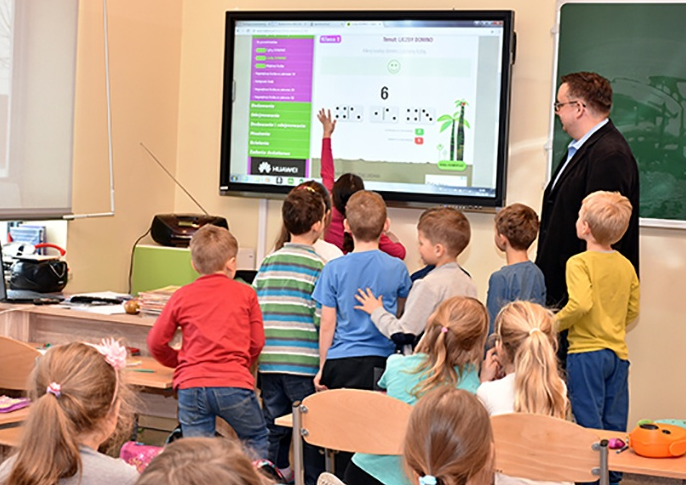As recently as a few years ago, it appeared that the interactive whiteboard technology was cementing itself as a permanent mainstay in the classroom — helping teachers to embrace technology and promoting 21st Century skills in students. Fast-forward to today, and the market has shifted. While a number of schools continue to use interactive whiteboards, many are transitioned to interactive digital displays—which look more like flat-panel TVs or jumbo-sized tablets than dry erase boards—as they fund new purchases.
An interactive whiteboard is a large display that connects to a computer and a projector. The projector projects the computer’s desktop onto the board’s surface, where users control the computer with a pen, finger, or other device. The board is typically mounted to a wall or floor stand. Student response systems and other such accessories enable interactivity among students.
One teacher may create an engaging lesson that focuses on one task, such as a matching activity where students use fingers to match items. Another teacher might integrate multiple items into a lesson plan, such as photos, music, and websites, that students can interact with and even write comments on the board. With the interactive whiteboard and interactive display teachers can transform the one-computer classroom into a workable instructional model.

Classroom applications for using interactive whiteboards and interactive digital displays include:
· Multimedia lessons and presentations including audio and video
· Collaborative problem solving
· Showcasing student projects and presentations
· Virtual field trips
· Recorded lessons that can be used by substitute teachers
· Documentation of student achievement
There are interactive whiteboards and digital displays that meet every school and district budget. Teachers report that increased student engagement is the number one benefit to teaching with these tools. The technology allows teachers to integrate multiple information streams into a coherent lesson individualized for their students and they provide an extraordinary opportunity to create classroom environments where students with different learning styles can engage and learn from each other.
评论
发表评论